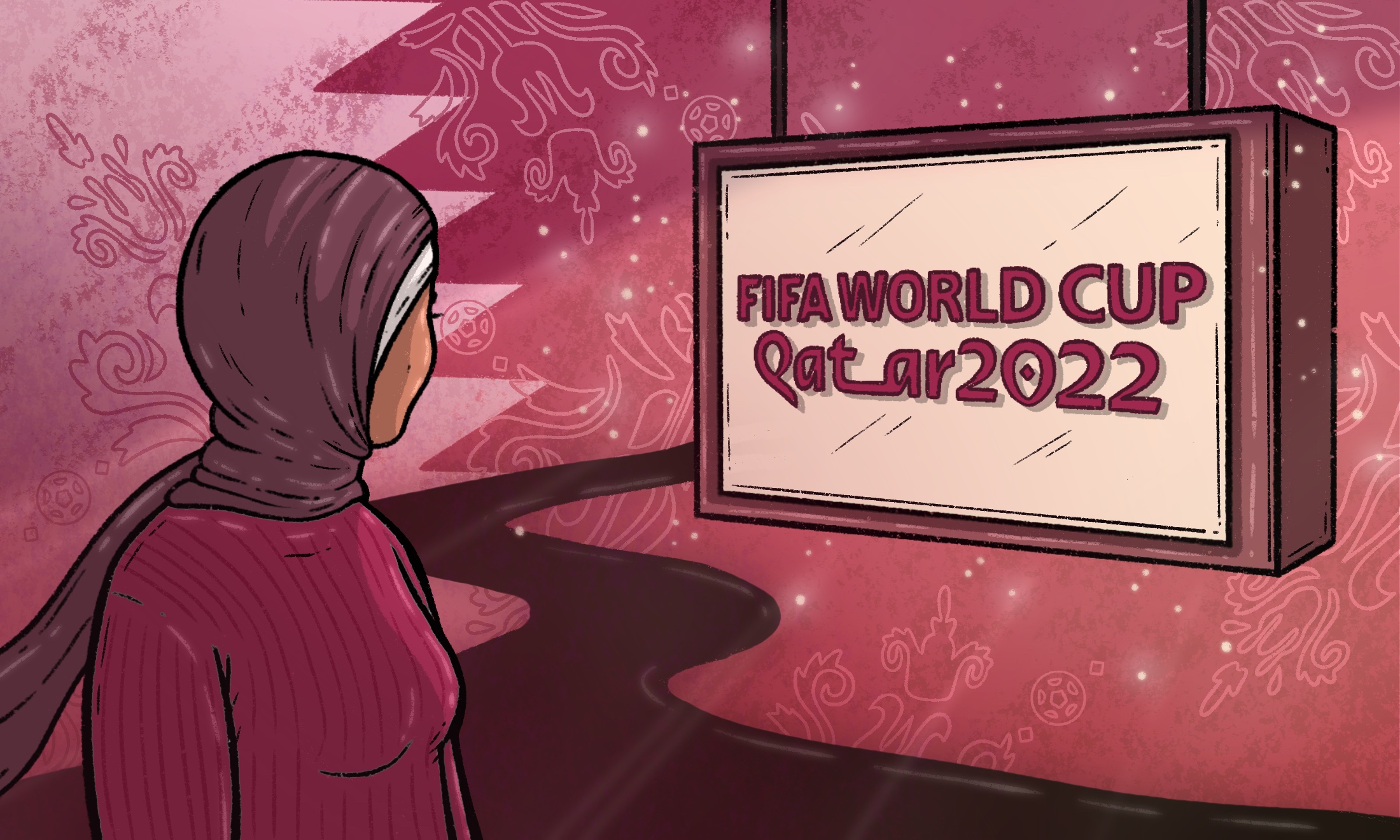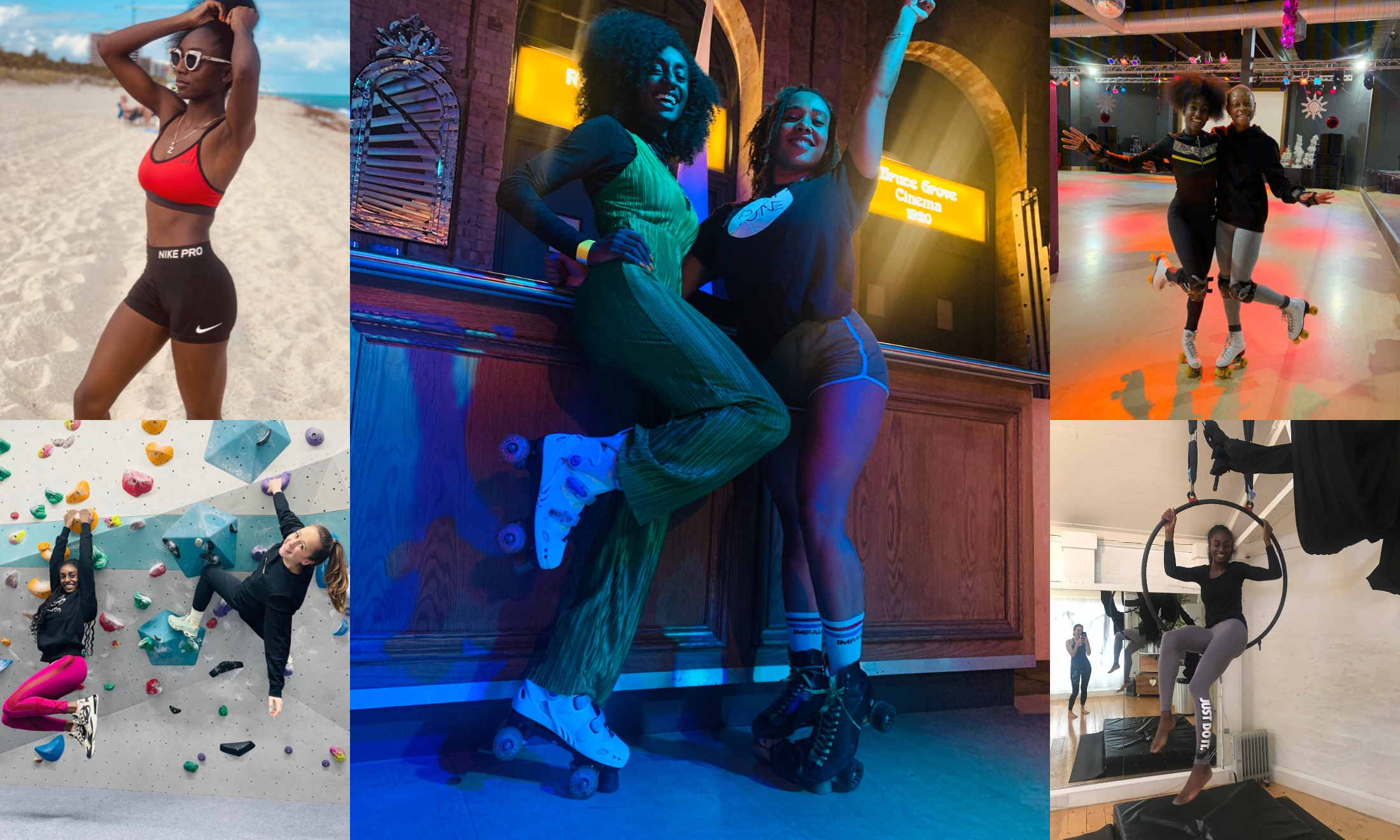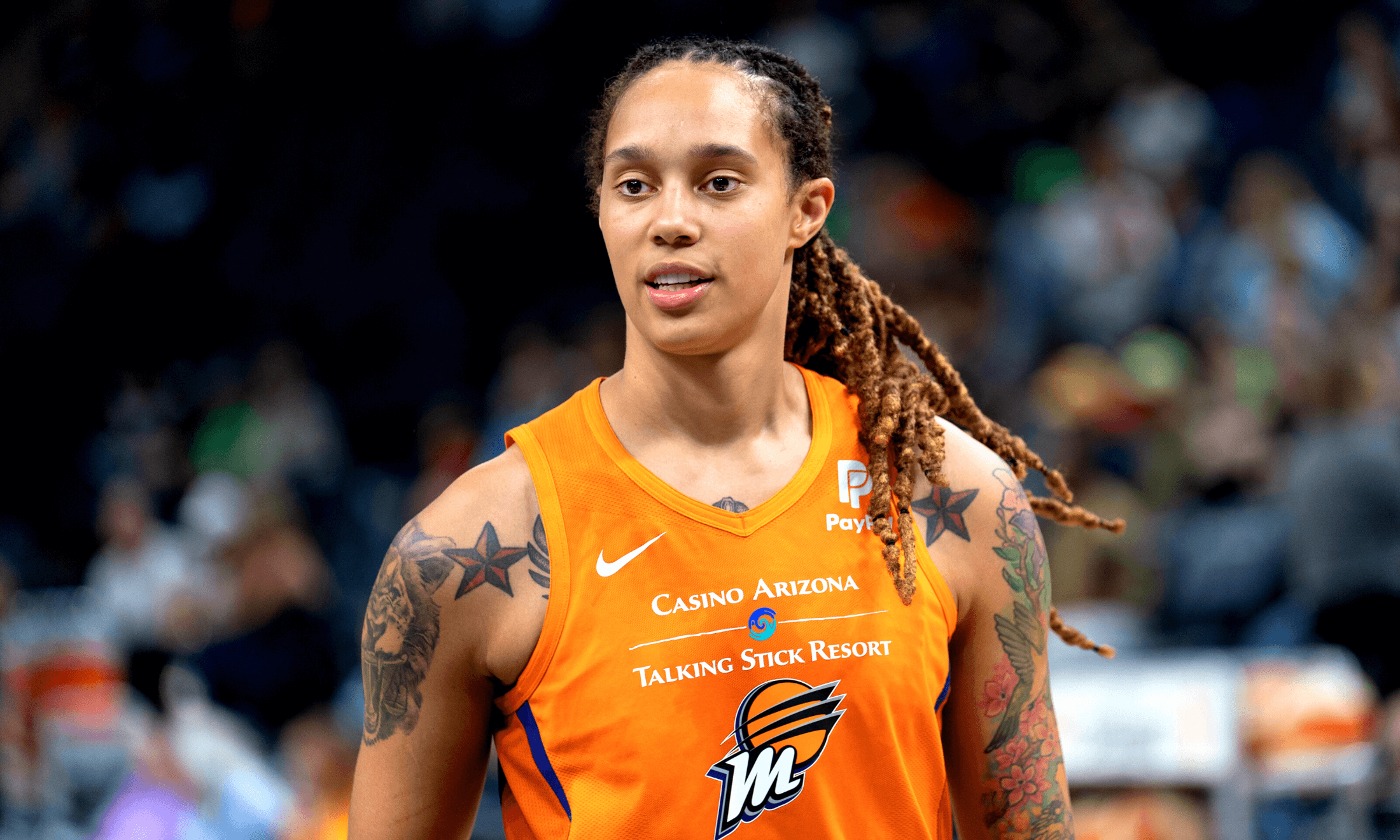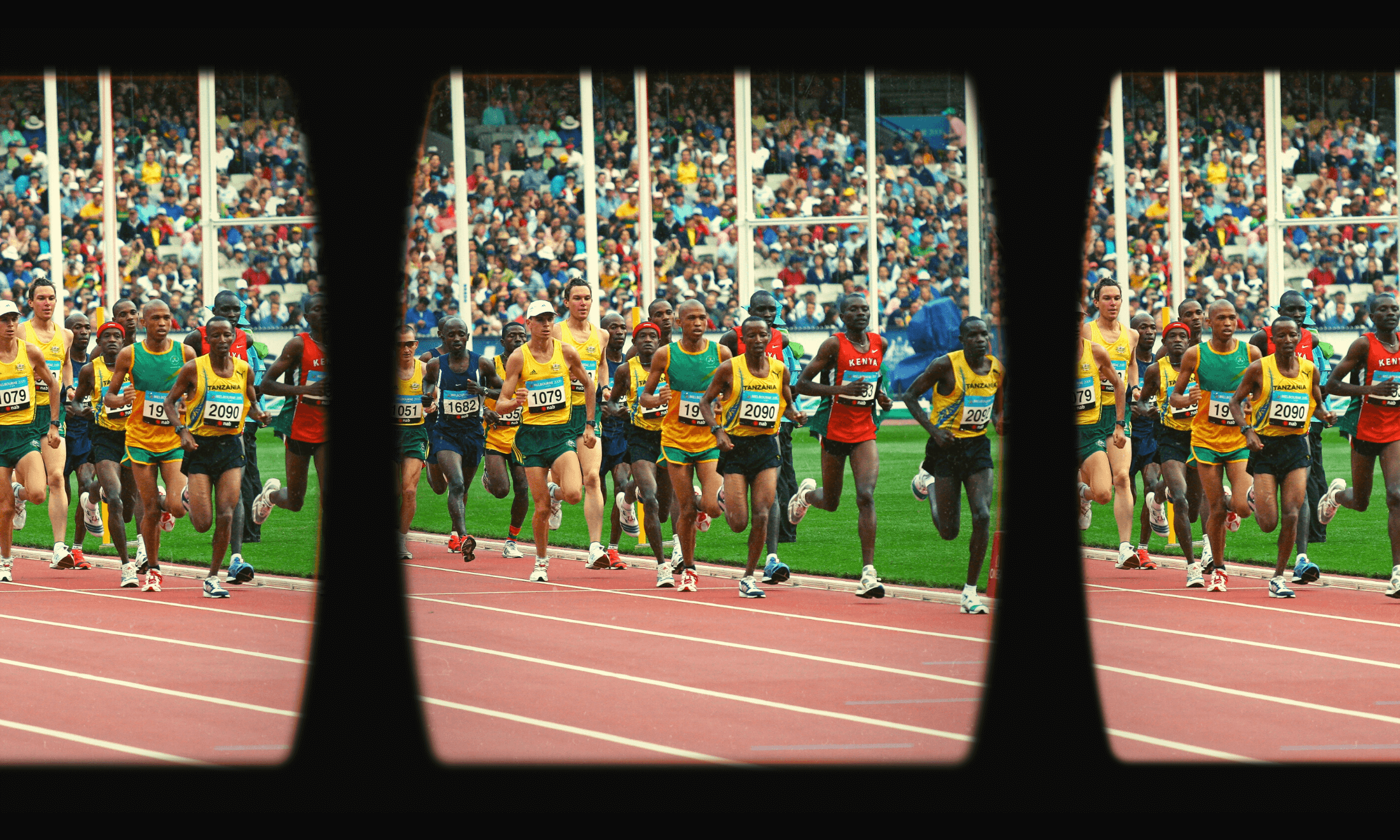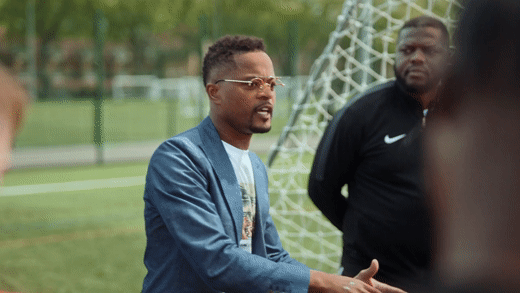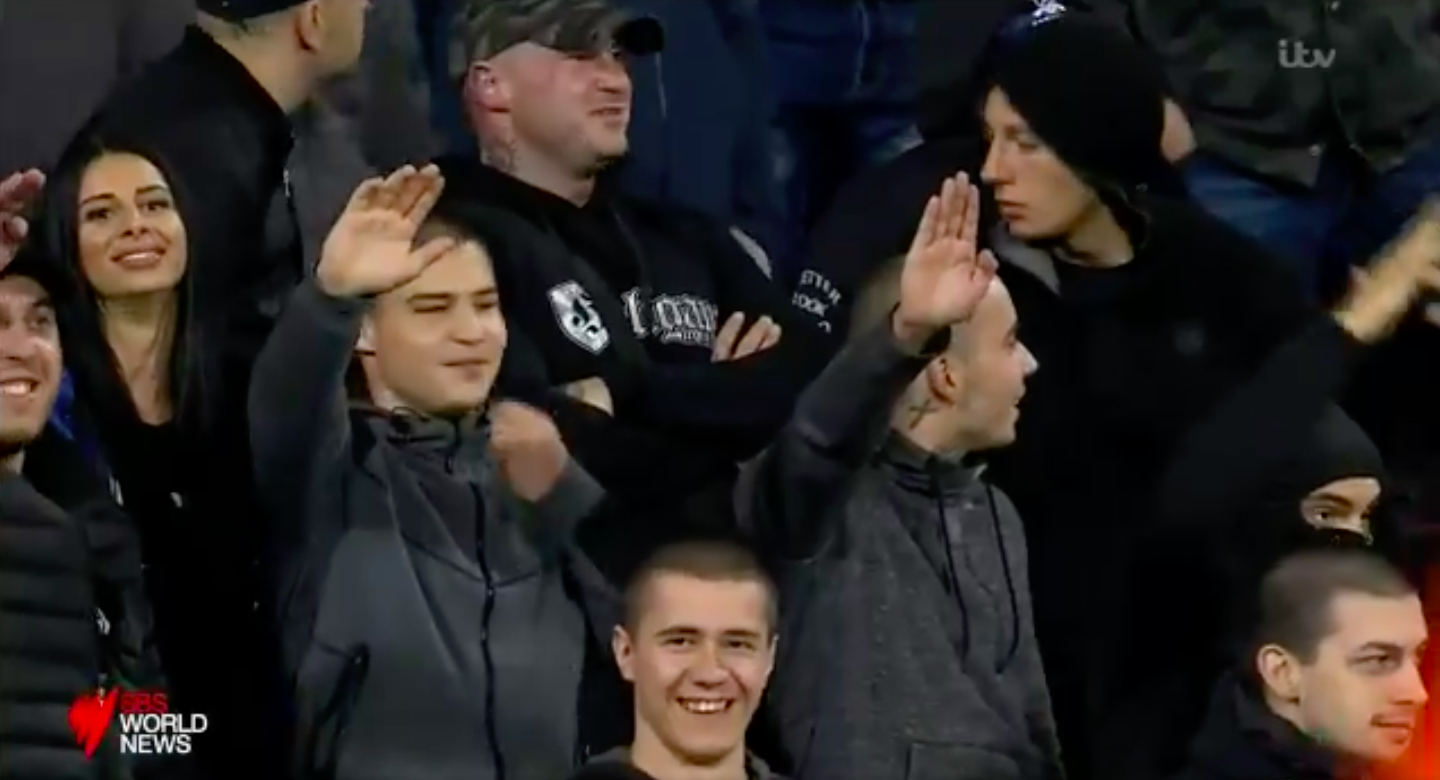
We shouldn’t forget that racism in football is a problem at home as well as away
Miriam Walker-Khan
16 Oct 2019
Photography via ITV
On Monday night, Tyrone Mings did what hundreds of thousands of kids up and down the country dream of: he made his international senior debut for England’s football team. But, in a turn of events that unfortunately wasn’t that unexpected, that achievement was overshadowed by him having to report Bulgarian fans chanting monkey noises from the stands.
During the match, every Twitter trend in the UK was related to the game. My timeline was flooded with images of fans making Nazi salutes. There was so much outrage, in fact, that yesterday, the president of the Bulgaria Football Union resigned after pressure from the country’s Prime Minister to do so.
If you watched the match on Monday, you probably felt disgusted and deeply uncomfortable. If you’ve suffered racist abuse yourself, you may have also wondered how so many young players found the courage to get on with their job in front of so many people and cameras, in those gut-wrenchingly, despicable moments of abuse.
But the very sad fact is they’re used to it.
The English Premier League has a serious, ongoing issue with racism, and the regularity of these incidents, not only abroad, but also in the UK, suggests we are not close to solving the problem. But on Monday, many British people seemed to forget it’s a problem here too, taking a moral high ground. Sajid Javid, for example, tweeted “Bulgarians should be utterly ashamed tonight of these racist thugs.”
If a whole nation of people should be ashamed – why didn’t he tell the people of England that we should all be ashamed of ourselves last December when a Chelsea fan racially abused Raheem Sterling from just metres away in the stand – or every time it’s happened in England since? Why is it a problem we so comfortably palm off on Eastern European countries as if it doesn’t also happen here constantly?
“UEFA have designed a three-step protocol – but why is racism given three chances when other behaviours aren’t?”
When these incidents take place, people flock to Twitter to express how shocking and abhorrent the racist behaviour is… but are we really still surprised that this is happening? Since the start of the year, UEFA has passed judgments on 24 separate cases involving racist behaviour. The consequences are fines and full or partial stadium closures.
Monday’s England v Bulgaria Euro 2020 qualifier was played in a partially closed stadium – meaning tickets to certain sections couldn’t be sold, leaving seats empty – as a punishment because of Bulgarian fans’ racist behaviour at a game four months ago.
There was talk prior to the match about a three-step UEFA protocol designed to help players report racist abuse during the game. The first step, when racism has been reported, is for the referee to stop the match and get the stadium PA to ask spectators to stop their racist abuse. Step two is to make another PA announcement if it hasn’t stopped, then suspend the match and send players to dressing rooms for a specific period of time. If it still hasn’t stopped, the final step is to abandon the match.
Oddly, it seemed that not many people had heard of the protocol until a few weeks ago, but Chelsea and England player Tammy Abraham made headlines after saying England were prepared to walk off the pitch on Monday if it came to it – on the team’s own terms, not following the protocol.
“If it happens to one of us, it happens to all of us,” he said.
Footballer Eni Aluko articulated her thoughts on this protocol as excellently as you’d expect, tweeting:
“Concussion protocols, anti-corruption, anti-doping, match fixing, VAR, FFP…. None of them are player/coach led decisions. None have 3 strikes🤔
Why is the decision to endure racism in an International game still falling on players/coach? Why is racism given 3 chances?”
I cannot stress enough how important Eni’s last question is. Why is racism given three chances?
The problem with racism in football is that it isn’t just a racism in football problem – but it is treated like one. It’s a problem with society. And we cannot rely on football to fix it.
During Monday’s game, pundit and former Arsenal legend Ian Wright said:
“As a black player, we’ve heard it for many years about walking off. But you do need your white players to do that for you, so you can go off together.”
Racism in football is simply a microcosm of society’s own broader issues with race. The history and existence of race – biologically non-existent, but as a powerful social construct – means that white people should help to tackle it.
“As a five-year-old, I got dragged along to matches at Bramall Lane all the time. It was there that I first heard the word ‘Paki’ – shouted across the stands, and met with laughs and cheers”
Yesterday, new figures showed that there’s been a 10% rise in hate crimes (recorded by police) in England and Wales. For context, they’ve increased by 144.829% since 2012-13. A staggering 76% of those were race hate crimes, which have also risen by 11%. It’s no coincidence that race-related hate crimes have increased as racist abuse towards footballers has. It’s clear then, that UEFA protocol alone cannot end racism, but football is nonetheless intrinsically intertwined with racism.
My Dad was a semi-professional footballer, and for years, members of my family and the broader Pakistani community in Sheffield have since told me he never made it professional because of the racism. He did work for Sheffield United, though. And as a five-year-old, I got dragged along to matches at Bramall Lane all the time. It was there that I first heard the word “Paki” – shouted across the stands, and met with laughs and cheers. Knowing what it meant even then, I decided football stadiums were places where I felt deeply uncomfortable and out of place. As I got older, I realised that if I could choose to not be in a situation where racism was sure to be overt, I sure as hell would not be there.
Even now, despite loving football and being a sports journalist, I prefer going to games in groups to avoid feeling that sense of discomfort. Or, I go to women’s games, where I’ve noticed these issues still crop up, but less frequently.
Racism is destroying football. How many kids are growing up now, watching people throwing bananas at their heroes, or doing Nazi salutes, or seeing angry white men shouting “black c*nt” at one of the most prominent players in our national squad?
We cannot continue to make excuses about “ignorant people” ruining it for everyone else. Serious action has to be taken by UEFA, before the situation is beyond repair. If the powers that be fail to tackle the issue competently, what kind of message do we send to future generations?

